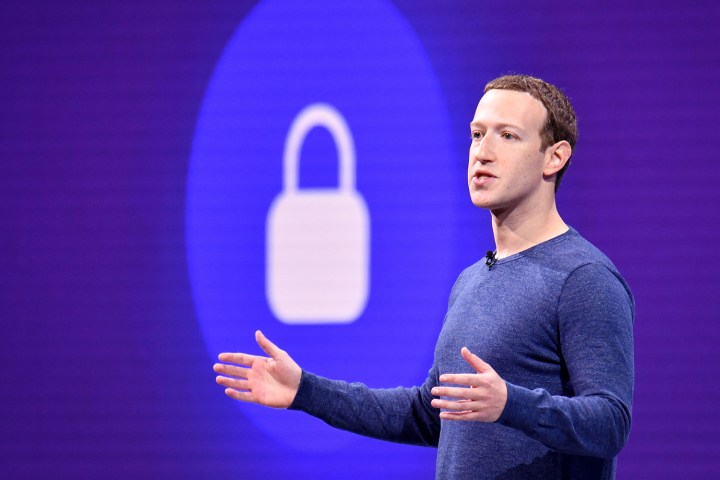
The Justice Department said on Tuesday that it would finally (finally) start an investigation into how Big Tech got so damned big – and whether it’s too big for its own britches. About time.
Many pundits argue that scale is a necessity for dollar- and data-rich tech giants like Facebook, Google, Amazon, and Apple — enormous businesses that truly put the “world” in “World Wide Web.” But forget how convenient online shopping is, and put aside the fact that it’s easier than ever to get in touch with friends around the world. Antitrust investigations are needed when a business’s sheer bulk is abused, when innovative smaller companies are squashed, and when consumers are impacted. And frankly, that’s a very real problem in the tech world today. While the Justice Department didn’t say which specific companies it was looking at, there’s a few tech giants that have clearly become too big and powerful. Here’s my take on the top four.
Facing down Facebook
Consider Facebook, for starters. Sure, you don’t have to sign up for an account if you don’t want to. Does that mean it isn’t a monopoly? After all, you don’t even have to use it, do you? But over the years of scrutiny that Facebook’s business practices have taken, we’ve seen numerous examples of unscrupulous methodologies that abuse the faith we place in this company. Whether it’s sharing your private messages with random companies or giving out your phone number like an over-helpful parent, Facebook has abused your data and trust on a truly epic scale.

Heck, you know there’s a problem when the co-founder publicly writes that it’s time to break the company up.
Meanwhile, consider the social media world as a whole. If you don’t want to be part of Facebook, you should sign up for a different platform, right? Like Instagram, maybe, or WhatsApp — all of which are owned by Facebook. That’s the textbook definition of monopoly, no? Sure, Facebook finally will pay the government $5 billion for privacy violations, the largest fine in FTC history. The company also confirmed Wednesday that it’s now facing a separate FTC antitrust investigation. That’s a good start.
Grading Google
Let’s apply the same logic to Google. Say you no longer want to use Google (or its smug cousin, Let Me Google That For You) as a search engine. You turn to the next-largest one, right? Unfortunately, YouTube is the second biggest search engine on the planet – and it’s owned by Google. Just ask yourself when was the last time you Binged anything and you’ll see how dominant Google is.
Dominance itself isn’t a problem, of course, but there’s no shortage of complaints about how Google has abused its position at the top. Smaller companies like Yelp have been screaming about anti-competitive practices for years. The European Union labeled the company anti-competitive in March when it slapped a $1.7 billion fine on Google over the terms for third-party companies who wanted to use Google’s search bar in their own websites. According to the E.U.’s ruling, Google required the sites to favor ads from its own advertising services above the ads of competitors. Nice.
Will a giant fine do anything? Sure, it’ll sting, but don’t forget that Google’s parent company Alphabet reported revenue of $137 billion last year. Ouch?
Analyzing Amazon
As the de facto marketplace for consumer goods online, Amazon should be especially terrified of the threat of antitrust investigation. These types of investigations often come down to consumers, and whether a broader pool of companies to choose from would lead to cheaper prices. The theory is simple: When there’s a choice, buyers benefit. So why isn’t Jet.com, which promised cheaper products than Amazon, winning? Earlier this month, Walmart (which owns Jet) announced sweeping overhauls to the site, which it bought for billions and basically bailed on. Competition? I don’t think so.

Sure, Amazon is convenient, but the company’s latest practice — creating and selling its own products at a discount to compete with the vendors selling on its site — is the definition of anti-competitive. It’s as though the mall itself had opened a store called “Cheaper than Sears” next to your local Sears … and then redrew all of the mall’s passageways and entrances to point directly to its store. It’s so bad that retailers are more worried about Amazon undercutting their prices than their closest competitors.
What about Apple?
When it broke the news about the the Justice Department’s plans, the Wall Street Journal wrote that the government planned a broad antitrust review into “companies such as Facebook Inc., Google, Amazon.com Inc. and Apple Inc.” So what about Apple? I’m the last guy to give Apple a pass, but when it comes to anti-competitive practices and abuse of monopoly size, I don’t think Apple fills the bill.
For starters, there’s very clear competition. Don’t like Apple products and services? Get an Android phone, or a Windows computer, or use Spotify, or any of a multitude of quality tech products and services that are surviving and indeed thriving despite the unwieldy bulk of Apple and its Scrooge McDuck-sized pile of overseas cash. The other barometer I keep applying is whether a company’s business practices directly impact competition. The App Store? Sure, it’s designed to make Apple money, rather than foster competition. But again, get an Android. There are some great Android phones out there.
So set Apple aside. But the fact that these three giants dominate the spaces they work in is obvious at face value. And that alone isn’t justification for tearing them apart, no matter what Elizabeth Warren says. It’s the anti-competitive practices so widely described and investigated that should give us all pause. Let’s see what the Justice Department digs up – and whether tech monopolies end up getting buried.


